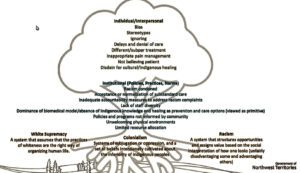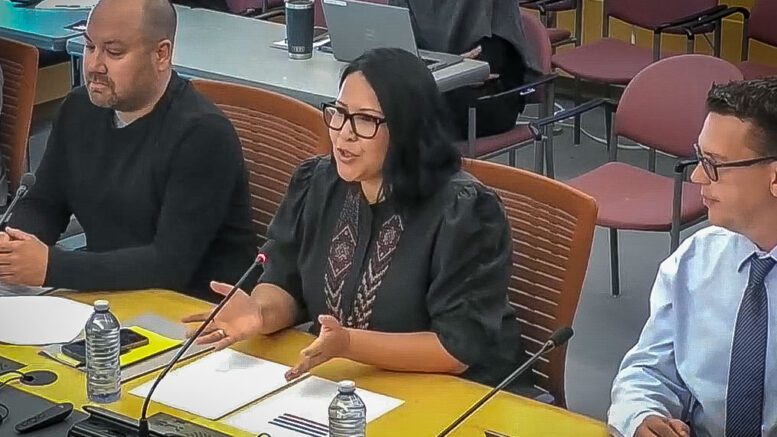The GNWT is producing anti-Indigenous racism commitment statements, to be included in job descriptions, to combat “blatantly obvious,” racism faced by First Nations, Metis and Inuit patients and clients when dealing with Health and Social Services staff.
Lesa Semmler is a former nurse in the Beaufort Delta and now is the NWT’s Health Minister.
She told the Standing Committee om Social Development there is an urgency to address anti-Indigenous racism by training service providers about cultural safety.
“To do that, all staff including front-line service providers need a foundational understanding of the ways in which anti-Indigenous racism manifests within the health and social service system to create inequities for Indigenous people,” she said.
“In addition to negatively impacting health directly, racism creates barriers that prevent indigenous people from seeking care when needed.
“Racism in the Northwest Territories is still blatantly obvious … we want to change, and we want to make change.”
Karen Blondin Hall is director of cultural safety and anti-racism for Health and Social Services.
She told the committee this week that commitment statements on cultural safety, will have to be considered by every employee through their job descriptions.
“So, we’re working with each division. And by getting to understand where systemic racism is showing up for their work, we can then develop a commitment statement for how we’re going to use cultural safety and anti-racism to address those issues.”
“As Indigenous knowledge and care options are viewed as primitive … we see racism showing up as bias stereotypes, with delays and denial of care, different or sub-par treatment, inappropriate pain management, (and) not believing patients.”
In 2018, the Department of Health and Social Services released a cultural safety action plan with broad objectives that publicly established commitments to address racism in general and systemic racism for Indigenous people accessing programs and services.
Minister Semmler said that since the action plan was released, there have been improvements within the department, including the creation of a standalone Safety and Anti-Racism Division. The improvements also include the roll-out of the cultural safety and anti-racism training, which include elements of critical race theory and post-colonial theory.
Indigenous patient advocates have also been established, with four positions in Yellowknife, Inuvik, Hay River and Fort Smith, with expansion plans for Dehcho communities.
The job description for the Cultural Safety and Anti-Racism director includes an example of what an anti-Indigenous racism commitment statement for the successful candidate reads like:
“The ability to commit to fostering a culture that embraces diversity and promotes inclusion and challenge longstanding norms that perpetuate inequities within the GNWT workforce. The ability to commit to actively upholding and consistently practising personal diversity, inclusion, and cultural awareness, as well as safety and sensitivity approaches in the workplace.”
The mandatory anti-racism training two-day sessions, which began in 2020, have proven to be heavily sought after by GNWT employees. Indigenous staff are exempt, as references to colonization, residential schools could be triggering.
Kieron Testart is MLA for Yellowknife’s Range Lake riding.
He was one of the last to ask questions in the hearing, and he inquired about enforcing the commitment statements, once they are rolled out:
“So, is job performance going to be measured against the commitment standards that have been developed … for competency?”
Replied Blondin Hall: “That is the core impetus … to have those elements structurally built into the job descriptions and have them as part of performance appraisals as a part of their core work.”
The Health and Social Services system in the NWT serves a population of 45,493 people, including 20,035 Indigenous people, across an extensive geographic area of 1.2 million square kilometres.
There are approximately 1,400 staff working in the Department of Health and Social Services, Northwest Territories Health and Social Services Authority, Tłı̨chǫ Community Services Agency, and Hay River Health and Social Services Authority.

Anti-racism flow chart for Health and Social Services. (Image courtesy Assembly Livestream)





